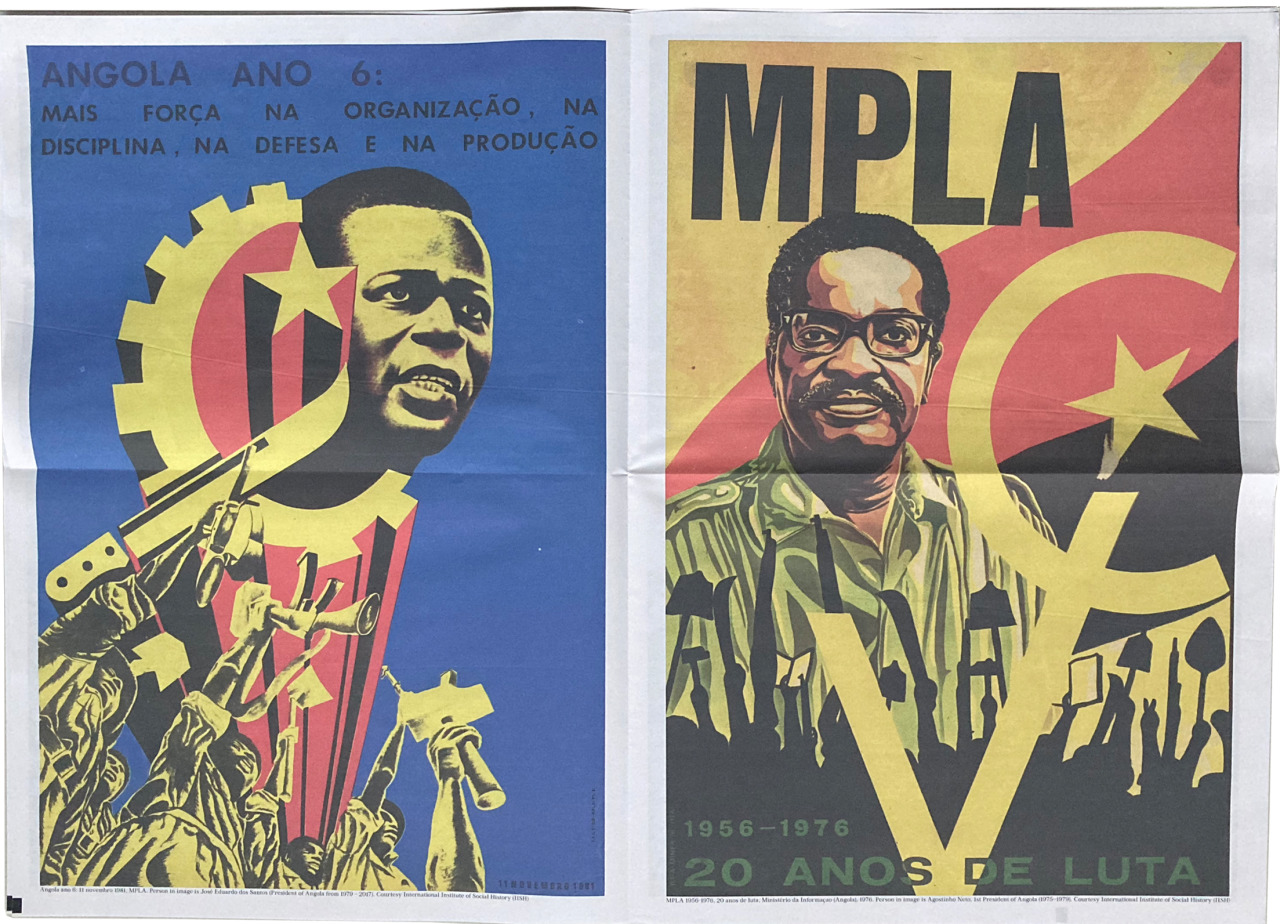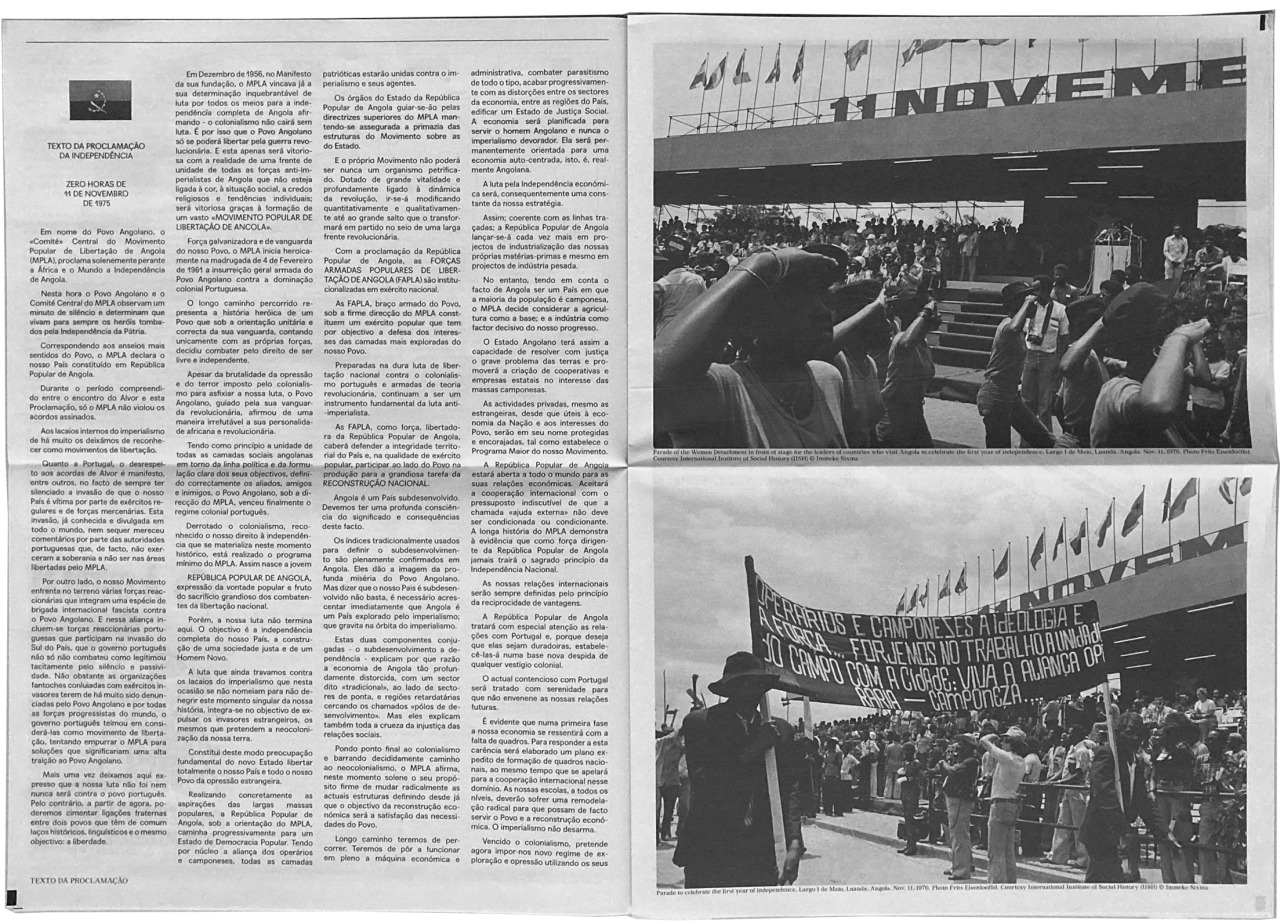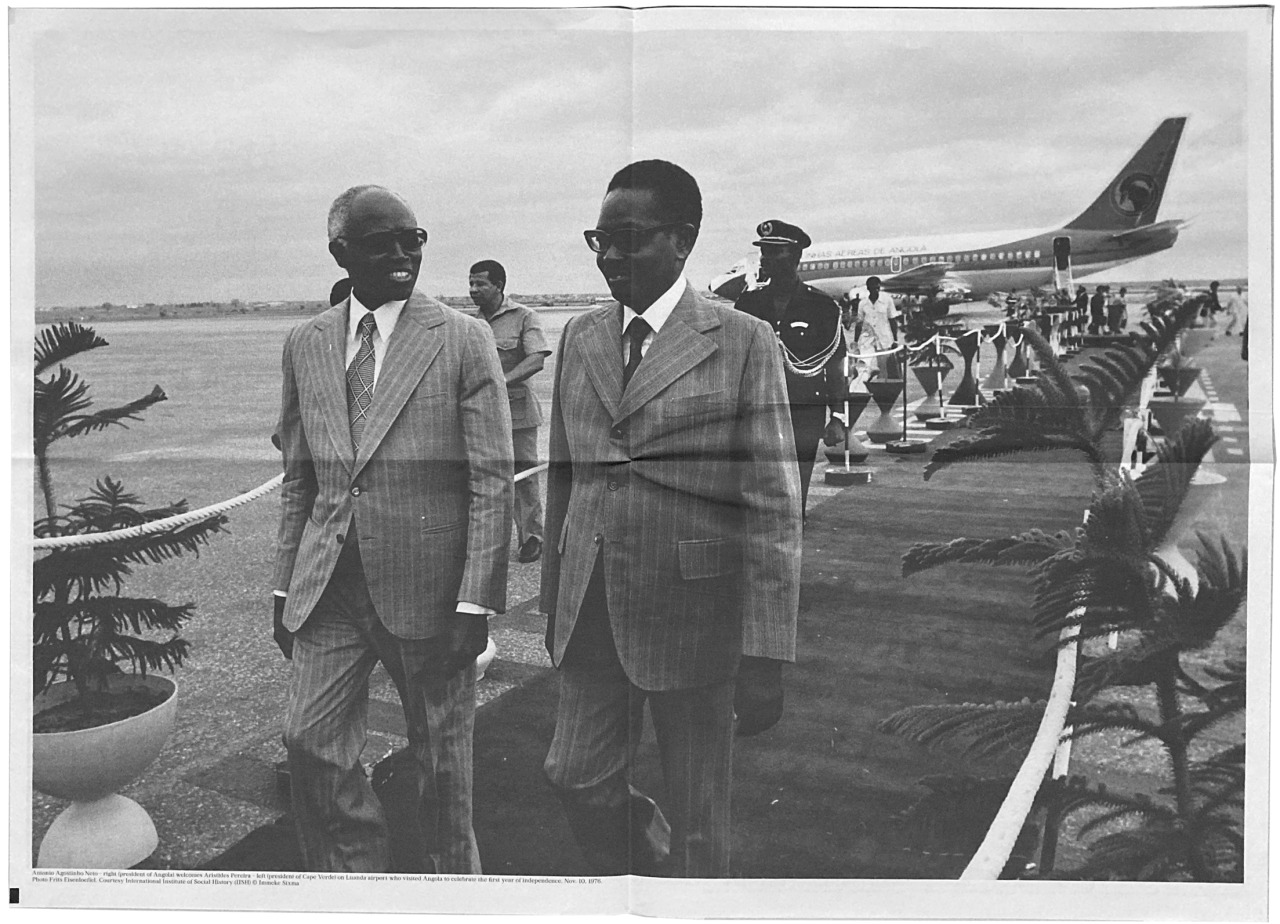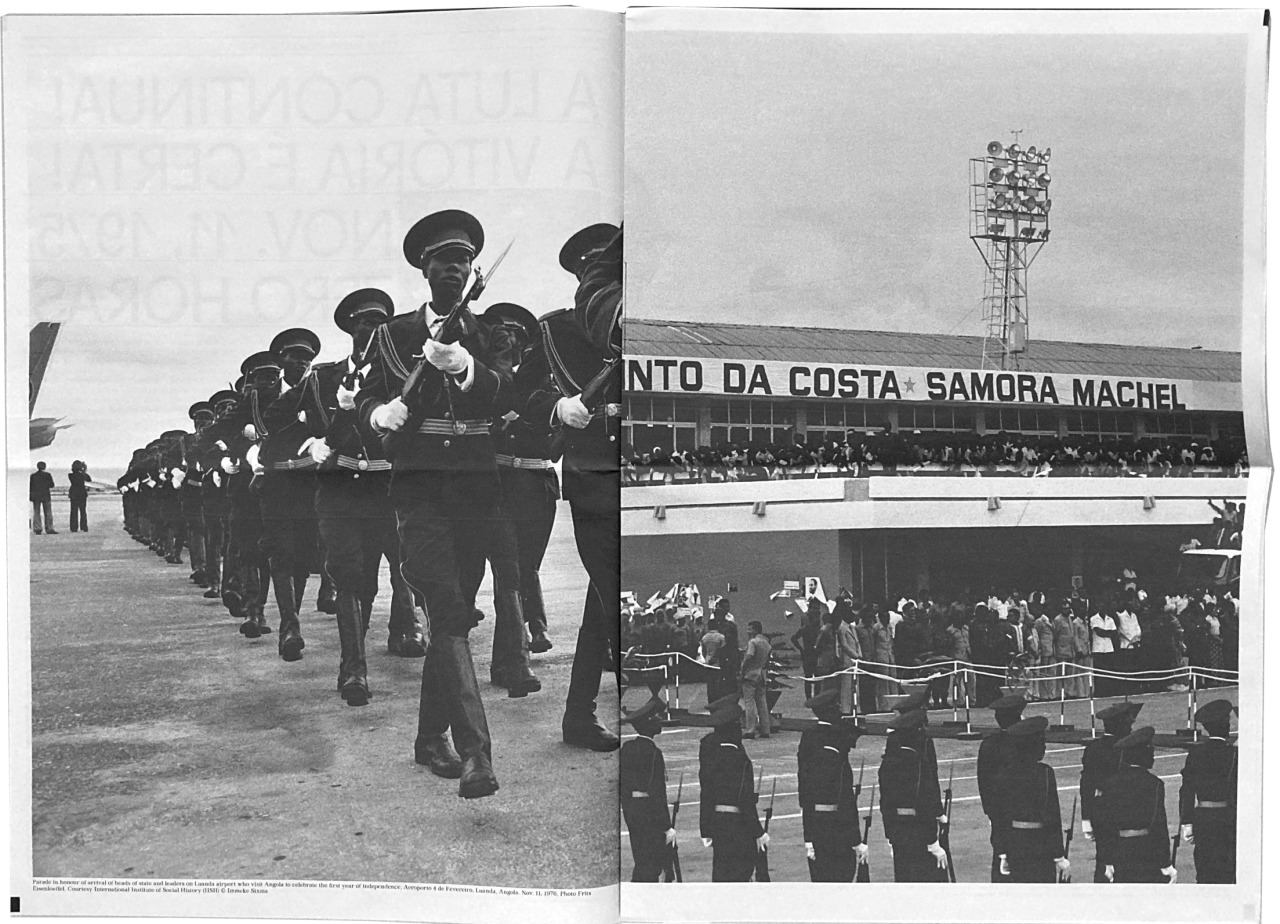research & publishing
hidden histories





On Nov. 11, 1975, The State of Angola has gained its independence from former colonizer Portugal. Angola’s independence ends nearly 500 years of Portuguese rule. Initially the Portuguese used Angola as a “slave pool” for its more lucrative colony in Brazil and mined Angola’s precious gemstones and metals. With independence, they proclaimed the first states of people’s democracy in the southern part of the continent.
The leader of one of the country’s rival factions, Dr. Agostinho Neto, of the Popular Movement for the Liberation of Angola (MPLA), has been proclaimed the country’s first president. Treaties were signed, but soon it became clear that the Portuguese were leaving the country in chaos. Internal conflicts arose that led to a civil war that lasted more than 25 years.
Photographs in this issue were taken by Frits Eisenloeffel during the celebrations of the first year of independence in Luanda in 1976.
In the 1970s and 1980s, the Dutch journalist and photographer Frits Eisenloeffel recorded the decolonization, freedom struggle, and reconstruction of various African countries during his many travels on the African continent. His journalistic legacy is now archived in the International Institute of Social History (IISG).
The leader of one of the country’s rival factions, Dr. Agostinho Neto, of the Popular Movement for the Liberation of Angola (MPLA), has been proclaimed the country’s first president. Treaties were signed, but soon it became clear that the Portuguese were leaving the country in chaos. Internal conflicts arose that led to a civil war that lasted more than 25 years.
Photographs in this issue were taken by Frits Eisenloeffel during the celebrations of the first year of independence in Luanda in 1976.
In the 1970s and 1980s, the Dutch journalist and photographer Frits Eisenloeffel recorded the decolonization, freedom struggle, and reconstruction of various African countries during his many travels on the African continent. His journalistic legacy is now archived in the International Institute of Social History (IISG).